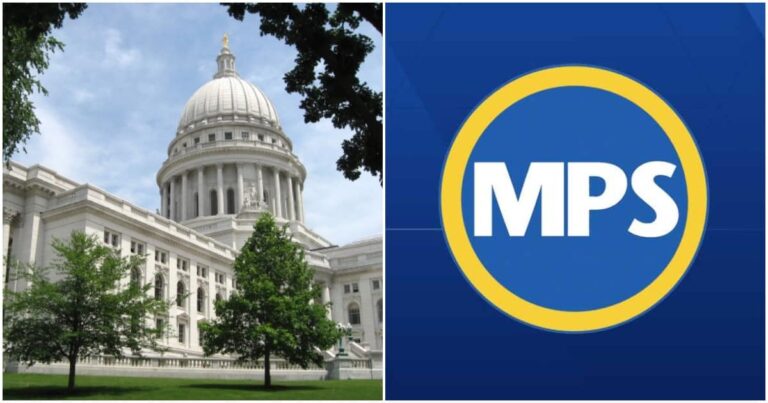
Wisconsin’s two largest school districts are likely looking at massive budget shortfalls next year, despite millions from local tax increases and tens of millions of dollars from the federal government over the past two years.
A new report from the Wisconsin Policy Forum lays out the fiscal cliff that both Milwaukee Public Schools and Madison Metropolitan Schools face.
“MPS and MMSD largely avoided using the temporary COVID-19 aid for ongoing expenses such as paying teachers. Yet as the state’s two largest districts budget for no increase in state revenue caps next year, they are proposing for now at least a greater reliance on the one-time pandemic relief funds for ongoing spending – an ominous sign,” the Forum report states.
There are two immediate concerns for both school districts. One, is the end of the federal coronavirus stimulus money. The other is the continued drop in enrollment for public schools in Milwaukee and Madison.
The Policy Forum report says Madison Metropolitan Schools received over $70 million in coronavirus money since the spring of 2020, all that has to be dedicated by 2024. Milwaukee Public Schools saw the most coronavirus money in the entire state, at over $740 million. That money too must be earmarked by next year.
The report notes that Milwaukee Schools have lost the most students in the state as well.
“MPS lost more than 1,600 students and had the largest decline at 2.3% of any of the [10 largest] school districts,” the report notes. “Madison Metropolitan Schools’s enrollment declined by 260 students, or 1.0%, a slightly higher rate than the state as a whole. Overall this year, 164 school districts gained enrollment, five saw enrollment stay the same, and 252 experienced a drop in enrollment.”
Fewer students, the Police Forum said, leads to less state funding for public schools.
Some of the students moved to other public school districts, but in Madison in particular, the report says many of the students went to new charter schools.
The Policy Forum Report says while an increase in state money for public schools could stave-off the worst of the fiscal cliff, the drop in students and the loss of federal money could lead to new tax increases.
“With enrollment falling in both districts (thus portending continued cuts in both revenue limits and potentially state equalization aids), unassigned general fund balances shrinking, and the state budget unlikely to provide enough additional support to fully offset the loss of ESSER monies, property taxpayers in both districts likely will be under pressure to pay more to sustain existing levels of staff and services, and more cuts may still be needed in 2025,” the report states in its conclusion.